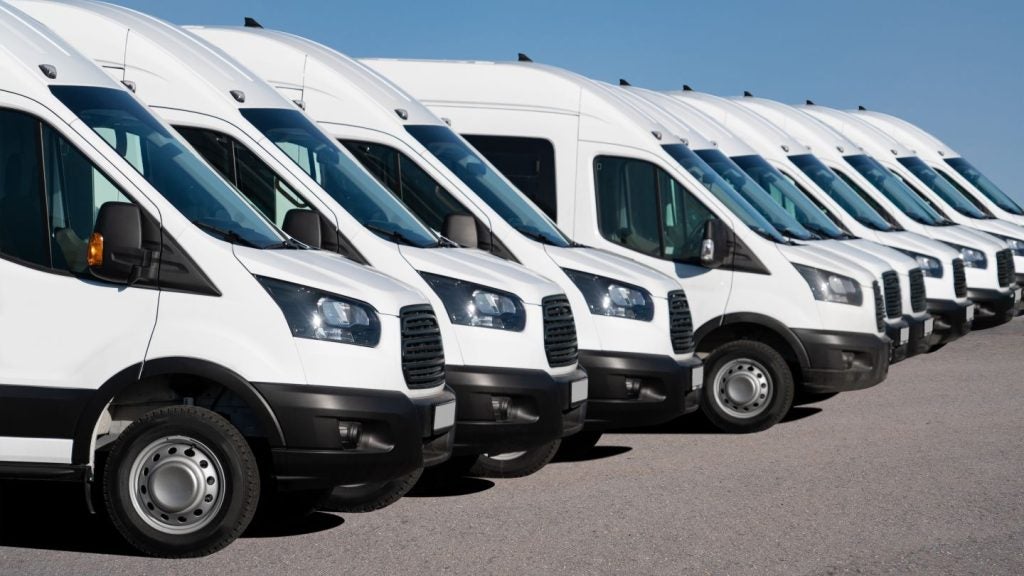
Although the UK is a
successful market for Fleet Logistics, Antonio Fabrizio discovers
the European fleet management company has global
ambitions.
European fleet management company
Fleet Logistics is in the middle of a large-scale expansion, taking
on new markets, products and customers, as well as building
operations in the UK.
The company, which has operated for
15 years in Western Europe, has recently opened new offices in
Eastern Europe and is planning further expansions. It has expanded
into Slovakia, the Czech Republic and Hungary. At the same time, it
has strengthened its geographical coverage to include the Baltic
region.
It now plans to fill its current
gap in South-Eastern Europe with new offices in Greece, Turkey and
Romania next year.
How well do you really know your competitors?
Access the most comprehensive Company Profiles on the market, powered by GlobalData. Save hours of research. Gain competitive edge.

Thank you!
Your download email will arrive shortly
Not ready to buy yet? Download a free sample
We are confident about the unique quality of our Company Profiles. However, we want you to make the most beneficial decision for your business, so we offer a free sample that you can download by submitting the below form
By GlobalDataFleet Logistics UK business
division director Stuart Donnelly said: “The UK is a very
successful market for us, particularly in the past three or four
years. There has been a growing acceptance and popularity of the
multi-supply concept. As in other markets, we have seen a good
number of large corporations moving to Fleet Logistics.”
Larger focus on
vans
 The UK branch has
The UK branch has
clients such as Bosch and Yell on its books, and now manages some
15,000 vehicles, with a larger focus on vans than the rest of the
Fleet Logistics network.
In the UK, as in mainland Europe,
Fleet Logistics bases its business on “multi-bidding”.
CEO Peter Soliman explained: “The
multi-bidding solution, which we introduced when we launched 15
years ago, competitively tenders each new vehicle added to a
client’s fleet with a panel of preferred leasing company
suppliers.”
Soliman said multi-bidding
generates competition on every vehicle ordered, translating into a
claimed group-wide cost saving of €500m (£425m) for clients across
Europe.
The company claims half of these
savings have been generated by multi-bidding, with the balance
coming from introducing optimised vendor management and car policy
advice for clients, as well as promoting tight cost control.
Overall, Fleet Logistics manages
75,000 cars and vans and works with around a hundred vehicle
leasing companies across Europe. These are a combination of
international leasing companies (including LeasePlan, GE Capital,
ALD and Arval); national lessors (Lex Autolease, Hitachi Capital
Vehicle Solutions); and captive companies (such as Alphabet and VW
Leasing).
“We work with the most well-known
leasing companies,” said Soliman. “All our clients have a legacy
leasing supplier when we implement them, and some of those
companies will be involved in the new process.”
As in the UK, Fleet Logistics
typically works with large multinational companies, some operating
in excess of 1,000 vehicles. International clients include
companies in the IT industry (Microsoft, Dell, Sun); the chemical
and pharmaceutical sector (Perkin Elmer, Dow, Covidien); applied
technology and services (TNT, Cargill, Ingersoll Rand); and
consumer goods (including Henkel, Masterfoods and Kraft).
Microsoft has been one of the
company’s longest customers – getting fleet management consultancy
for around eight years.
Soliman said: “We started our
business in Belgium and then added other offices across Europe.
“Around five years ago, we realised
that, in order to serve pan-European clients, we needed a
pan-European structure.
“We have a central backbone and a
decentralised presence. This means we have pan-European account
managers, agree on
pan-European initiatives, and pan-European pricing.
“Most importantly, we have a
pan-European IT system, which allows the same input
of data. So, at the press of a button, we can create transparency
for our customers. The same definitions and processes are in all
our offices.”
Global reporting
tool
The company is adding a global
reporting tool to its product range.
“We are about to go live with what
we call global reporting, which potentially allows us to manage the
fleet across the world,” added Soliman.
“We are in the process of
developing this service with Microsoft globally.”
This worldwide reporting
proposition is Fleet Logistics’ first step to globalising its
presence.
Soliman said: “Potentially the next
likely step is to expand into either Brazil, the Far East, or
Australia within a 12-24 month horizon” once the new system is in
place.
The company said it has already
invested €65m in the past decade in new staff, technology and
offices.
There are also new acquisition
plans, which Soliman is not willing to reveal yet.
He only disclosed that the new
businesses he is trying to acquire are complementary to Fleet
Logistics’ current offerings.
“There are some capabilities we
would like to add to our corporate proposition, and we are looking
at a couple of options in existing markets,” he added.
“We are not looking at companies that do the same thing as we
do, but companies with complementary capabilities. The plan is to
do this in the next 12 months across Europe.”







